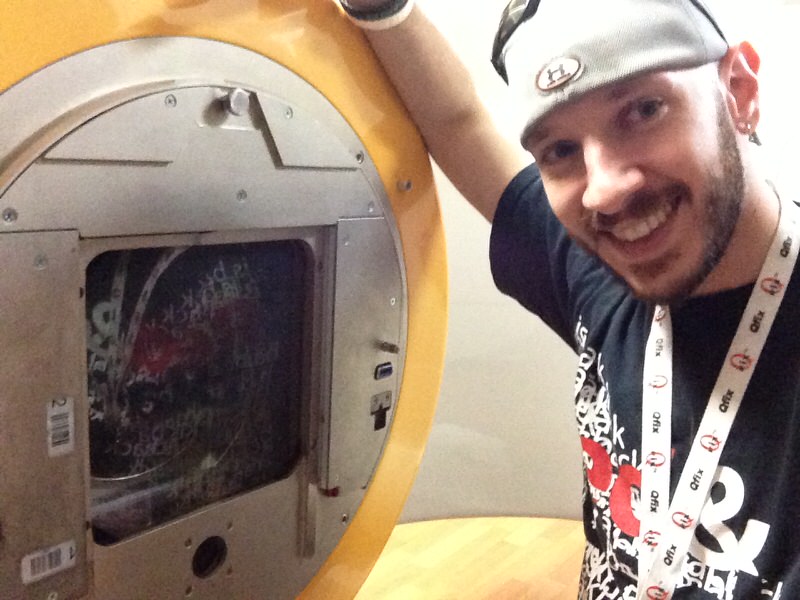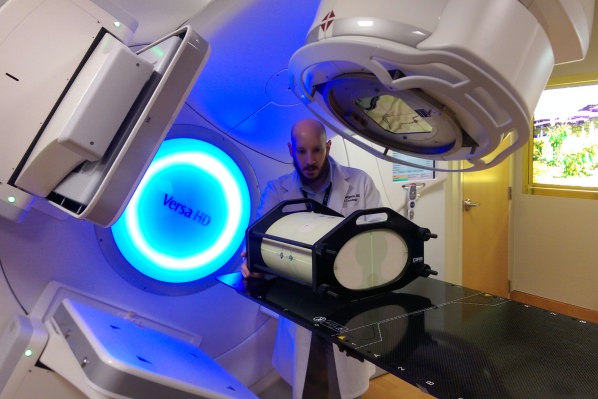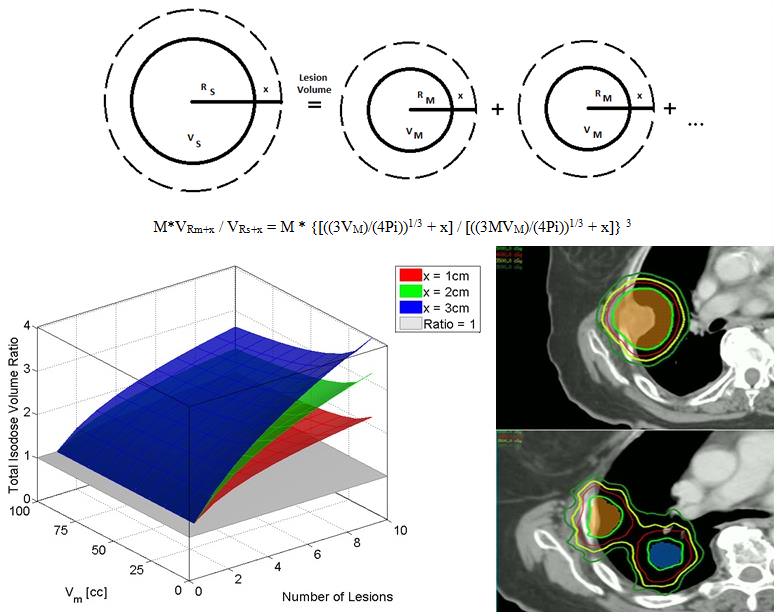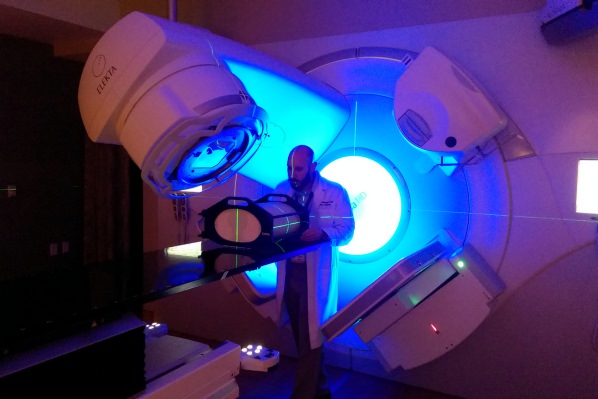Final Words: Angelo Bergamo & the Medical Physics track
Congratulations Angelo Bergamo, the newest graduate from the Ph.D. program in Radiological Sciences – Medical Physics, for completing your dissertation on “Possibilities and Implications of Biological Dose Evaluation.”
Please tell me about yourself, why did you pick
UT Health Science Center, and your program.

During my
undergrad years, I was an Emergency Medical Technician (EMT) back in New York, for three years which shares some similarities with the field of medical physics in the sense that it allows you to directly give back to the community by playing an irreplaceable part in the therapy team, aiding and sometimes even curing patients of cancer and so, I decided to make it my profession.
I could probably talk quite a bit about why I like the field of medical physics so I’ll try to keep it short. Not only does medical physics have this overall theme of helping people but it’s also this interdisciplinary marriage between radiation physics, biology, and technology.
Originally doing my Bachelor’s in Physics, the topic of
radiation physics always interested me. Radiation has always had this dangerous and mysterious connotation associated with it due to its carcinogenic properties, but here we are using it to image and successfully ablate the very thing it can potentially cause.
I picked UT Health Science Center at San Antonio and their therapeutic medical physics residency and doctoral program housed primarily in the Cancer Therapy & Research Center (CTRC) because we have quite a bit to offer across a wide spectrum of
treatment modalities as well as a broad range of research topics. I came to UTHSCSA already having completed my masters in medical physics and it was very quickly evident after interviewing that the faculty here is top-notch. Each faculty member displayed this mixture of encyclopedic knowledge and professionalism that made the decision pretty easy for me.
Out of the clinical and academic setting, I’m a pretty easy going dude. I like getting together with friends for a beer and just hanging out after a long week. If you met me out of class, you would probably never guess I was secretly a complete nerd haha. I’m a bit of a jokester too.
What was the experience of graduate school like
for you?

Doing your Ph.D. isn’t just a 9-5 job, it’s a full-time deal that will definitely involve late nights and weekends but it’s all worth it in the end, I mean c’mon, now everyone has to call you doctor for the rest of your life haha.
But in all seriousness, getting the chance to travel and attend national conferences to present your research is not only an honor but a great opportunity to open the door to collaborations as well as networking within your field, with the latter potentially being extremely fruitful for employment as you near completion of the degree.
Why are you passionate about your research
topic? How did you first become interested in it?
 I view research as
I view research as
the frontier for which change occurs. Trying to push this line and discover
something new can potentially lead to improvements in how we treat which results
in better treatment outcomes down the line.
This is why I’m passionate about my
research topic of biological evaluation. If we can discover a new relationship
or even just squeeze a little extra out of our current methods, it will translate
directly into patient benefits so anything I can do to help patients through
research is a driving factor.
My interest in my
research topic started during my masters. Here I was introduced to more modern
and aggressive styles of treatment such as Stereotactic Radiosurgery (SRS) and
Stereotactic Body Radiotherapy (SBRT), the latter being a main theme in my
dissertation. These treatments use very few fractions and very high doses to ablate
tumors with very high levels of precision and accuracy. As you can imagine, the
physicist in me was very
interested to say the least so I continued research in this topic throughout my
studies.
What was your best memory during graduate school
or what did you learn?

I learned quite a
bit here. The coursework definitely strengthened my fundamentals with the residency
really refining the clinical workflow. During my time here, I additionally
became fully certified by the American Board of Radiology in Therapeutic
Medical Physics which is a distinct milestone in anyone’s career. My training
here has definitely made the certification exams go very smoothly and
concurrently open quite a few doors for me in the future so I’m grateful.
Well I can’t
recall any specific best memory but I can say that most of my best memories are
basically just de-stressing with friends. Whether that entails just relaxing or
heading downtown for first Friday, the people you meet during these years
aren’t just your professional colleagues; they become your friends as well.
They are going through the same process as you and come across the same
difficulties so you tend to relate well with one-another.
What’s next?
I recently
attended AAPM’s (American Association of Physicist in Medicine) annual
conference held in Anaheim, CA and the first thing I did was post copies of my
CV on their career center board which led to multiple on-site interviews during
my time there.
Right now I’m
still in what I call the “gathering phase,” applying and interviewing at a
number of different locations.
Once I finish all
the interviews, I’ll see which institutions are interested in me and pick the
place I think will be the best fit.
Most people ask
“aren’t you tired after doing all this?” but I feel like every time I
successfully jump one hurdle, I can’t help but keep pushing to see what’s next.
Once I settle into the workflow of my new position, wherever that may be, I’m
pretty interested in possibly serving on an education or professional practice committee
with the American Association of Physicist in Medicine (AAPM) or the American Board of Radiology (ABR). These organizations are instrumental in the growth,
development and educational homogeneity of the field across the country so it’d
be awesome to be a part of that.
Any advice for your fellow graduate students?
My advice would be
“I hope you like coffee.” Just kidding… but not really! I think my true advice would be to pick a
field you’re truly interested and passionate about and always be open to making
new friends and the rest will come easy.
Basically, “if you love what you do,
you’ll never work a day in your life” and having awesome friends makes the
journey that much more of a fun ride.
